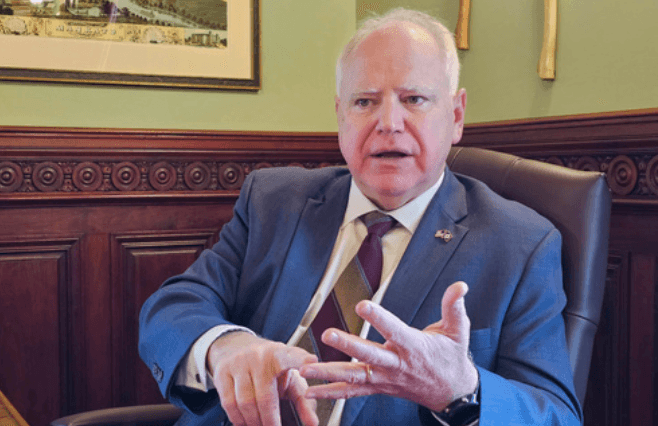Kamala Harris' Puzzling VP Pick
Both vice-presidential picks are in, and for the second time this cycle I’m left thinking to myself “Huh?” Neither pick makes much sense. To be clear, my less-than-favorable response to Donald Trump’s selection of Sen. J.D. Vance as the GOP pick probably resulted in more angry emails than I’ve received all cycle. I suspect my take on Gov. Tim Walz will probably do the same.
There are basically three good reasons to make a vice-presidential selection. The first is to help deliver a key state in which the vice-presidential candidate resides. The second is to help counteract a narrative developing about the candidate. The third is to calm a restive base. To give examples of all three: LBJ probably helped John Kennedy win Texas (and the presidency) in 1960. Joe Biden had foreign policy experience and was a Washington insider, which complemented Barack Obama. From a different angle, Al Gore helped complicate the GOP’s narrative that Bill Clinton was really just another liberal Democrat. Mike Pence illustrates the third type of choice: He probably helped to deliver Christian conservatives who questioned Trump’s bona fides.
Vance did none of these things. The same is true of Walz. If Minnesota – a state the GOP has not won in a presidential election since 1972 – is in play, the election is over. Might he have crossover appeal in Wisconsin? Maybe some, but the track record of vice-presidential picks trying to deliver states beyond where they reside is not terribly impressive. Frankly, Walz’s gubernatorial campaigns in Minnesota weren’t particularly strong either, and by 2022 his support had mostly dried up outside of urban areas (which in Minnesota is enough to win).
Walz doesn’t really help shore up a narrative about Harris – if anything, his own progressive bona fides (about which more later) – complicates what is probably the narrative Harris most needs to combat this cycle. Put differently, my most progressive friends are ecstatic about him, but if your nominee is pretty liberal, and you’re pretty liberal, and you find yourself excited about the vice-presidential pick as well, you should probably be concerned (and yes, I think the complementary view is also true for conservatives). Finally, if there is one problem Harris does not have, it is a restive base; the progressive wing of the party is still in full “swoon” mode.
What makes the choice more puzzling – the same is true of Vance – is that there were other candidates who probably check off any box Walz checks off, but who might contribute to the ticket in other ways. In particular, Josh Shapiro stands out as someone who might have delivered Pennsylvania. Pennsylvania is arguably the key state this election. If Trump wins it and carries the states that he carried in 2020, the election is very close to being over. Maybe internal polling has Team Harris convinced that Pennsylvania is in the bag (the public polling to date shows it as her weakest state), or maybe polling suggested that Shapiro really was problematic for Democrats in Michigan. But passing over him really is a puzzle to me (even more so than Trump passing over Rubio).
Likewise, the decision to pass over Mark Kelly of Arizona is puzzling. Yes, there were bad facts from Kelly’s divorce, and maybe there was other dirt that wasn’t uncovered in Kelly’s 2020 or 2022 Senate races. But Harris has a potential path through the Sun Belt; Kelly could have played a key role for that. He’s also a more convincing moderate than Walz and would be harder to build a “two extreme liberals” narrative around. Walz certainly has a sort of gruff, everyman appeal, but so did Kelly. But Walz is really more of a prairie populist, a type that was once commonplace in the Democratic Party (think Lane Evans or Mike Synar) but is largely extinct today, whose rabble-rousing exterior comes with a fairly consistent liberal voting record. Maybe over a short campaign it will be harder to pigeonhole Walz, and maybe that type still sells better in the Midwest than I think, but regardless, he’ll have a harder time avoiding being pigeonholed than a Kelly or even a Shapiro.
As a final note, if you’re someone who believes that “too liberal” is no longer a category, you won’t find much persuasive here. The same is true of people holding similar views about “too conservative.” There’s just a fundamental disagreement about the center of American politics at work. That disagreement is about to be put to a pretty strong test. Regardless, I don’t think Walz probably leaves Harris all that much worse off. He’s more of a missed opportunity, given the alternatives.
2024 State Races
Get caught up on the most important polling for the most consequential races of 2024.

